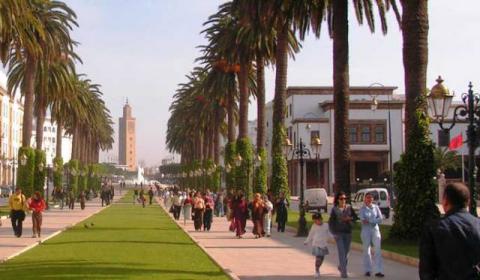
Alkarama sent her case to the Special Rapporteur on Torture and the Special Rapporter on the Protection of Human Rights and Fundamental Freedoms while countering terrorism, asking for their intervention with the Moroccan government on behalf of Doha Aboutabit.
In April 2009, Doha Aboutabit finished her medical studies and in July 2009 she was appointed as Head of a special department at Ait-Qamra hospital in Al-Hoceima, north of Morocco.
Four days after her arrested, her father was asked to bring some of her personal belongings, as the authorities had decided to extend her detention; however was not denied visitations rights. In fact, Doha Aboutabit was detained for 12 days at Al-Maarif police station, which amounts to the the maximum legal duration of police custody as part of a preliminary hearing in case of terrorist offenses. She was later brought before a Rabat's Court of Appeal and placed in the custody of Salé prison.
She is accused of "funding terrorism".
She has been implicated in an investigation involving her brother, to whom she allegedly sent money, and who would subsequently travel to Iraq where, according to authorities, he would later died in 2008.
According to testimony from her parents during their first visit to Salé prison, Doha Aboutabit was in severe psychological state, and complained of having been exposed to 12 days severe psychological torture. During those 12 horrifying days, she was held incommunicado. Incommunicado detention is in total violation of Moroccan domestic law, which requires that an arrestee see a lawyer within forty-eight hours of the initial extension of police custody related to crimes of terrorism.
In addition to the psychological harm she suffered, Doha Aboutabit received physical aggression, including having her face repeatedly burned with a lighter. She has also been threatened with never being able to see her child again, if she did not admit to the accusation against her. She consequently admitted to all the authorities' accusations.
The Committee against Torture's concluding observations during Morocco's periodic review on 5 February 2004 (CAT/C/CR/31/2), expressed its deep concern with "the extension of the period of detention, during which the risk of torture is greatest, both in the general criminal law in the antiterrorism law."
The Committee's experts also recommended that the Moroccan authorities keep the period of custody to a minimum, although the recommendation has yet to be considered by the State party.
Alkarama fears that the confessions extracted from Doha Aboutabit under torture may be used against her during his trial, in spite of the fact that Art 293 of the new Criminal Procedure Code, does not allow for confessions extorted by violence or coercion.
